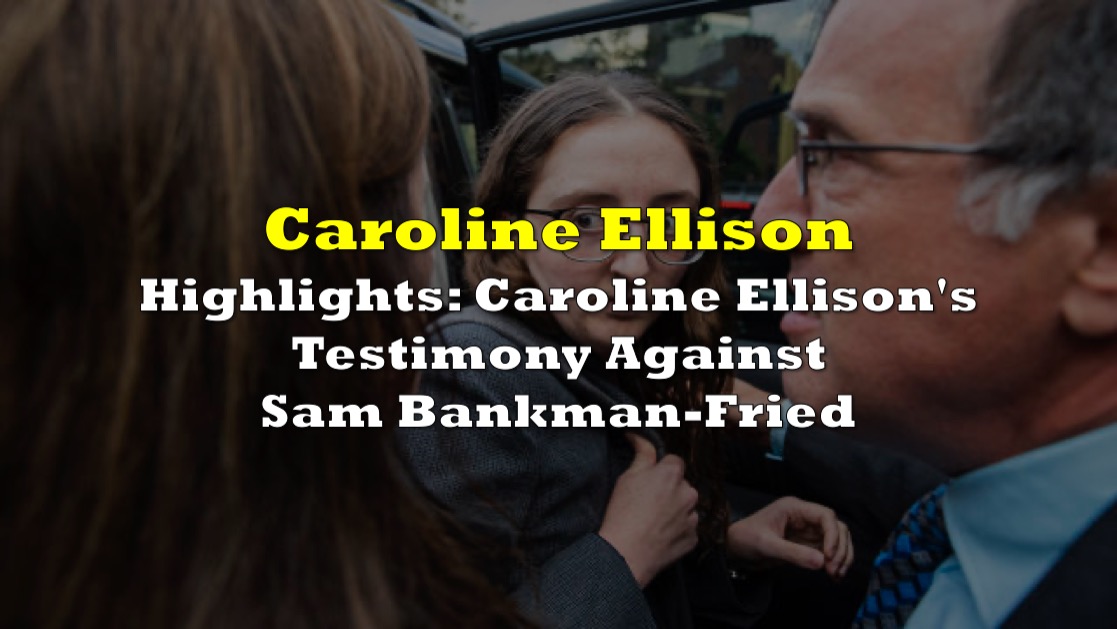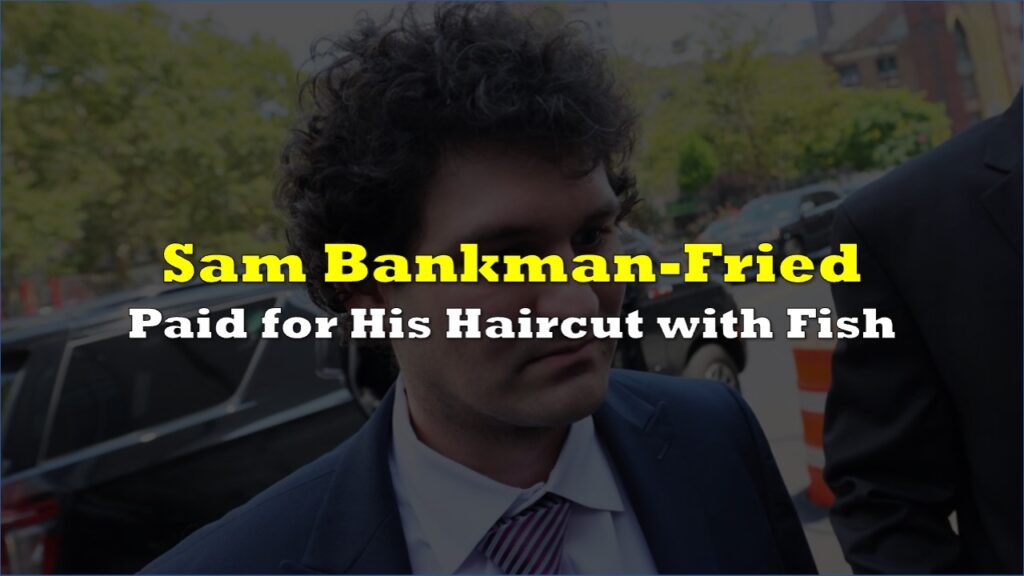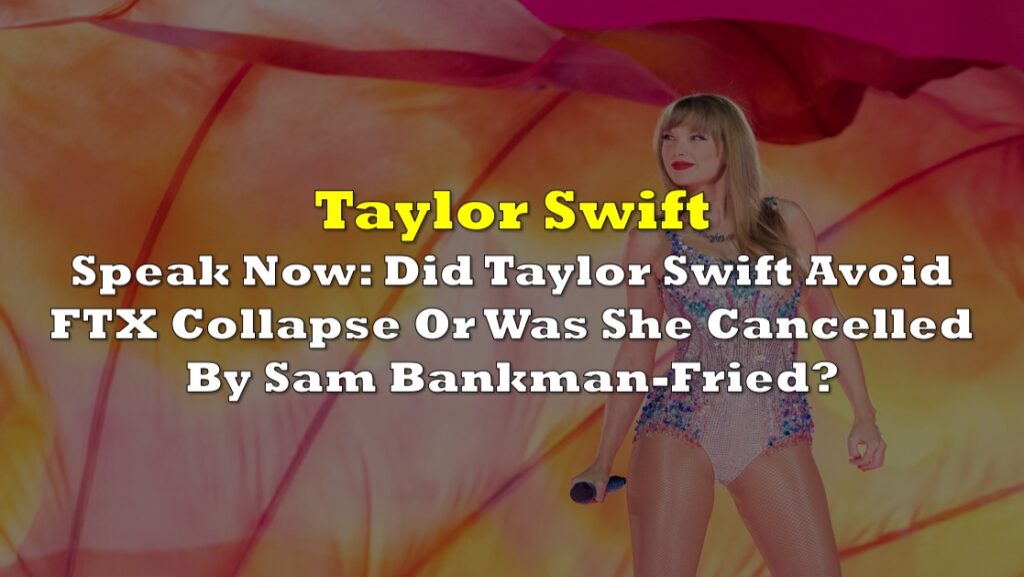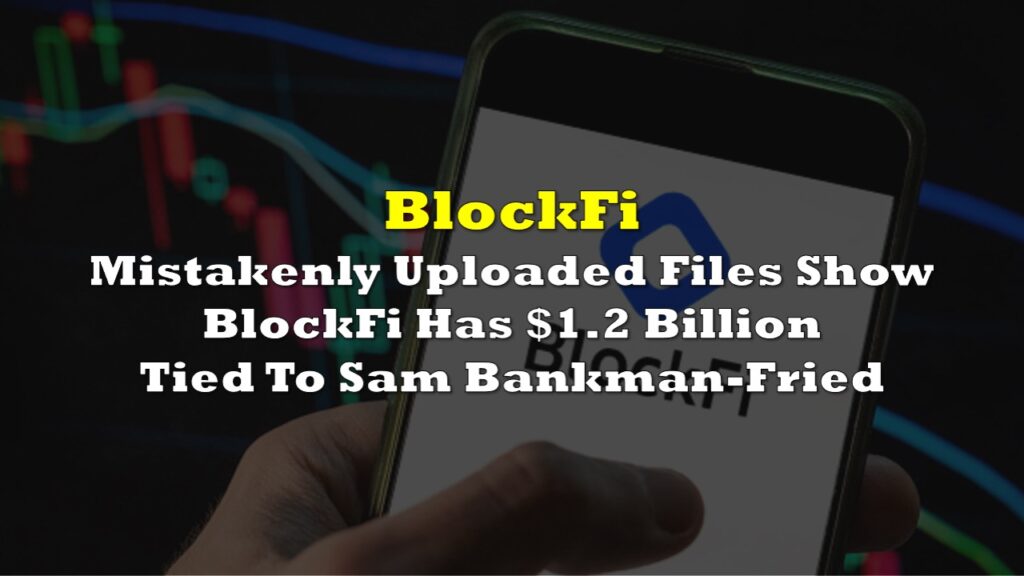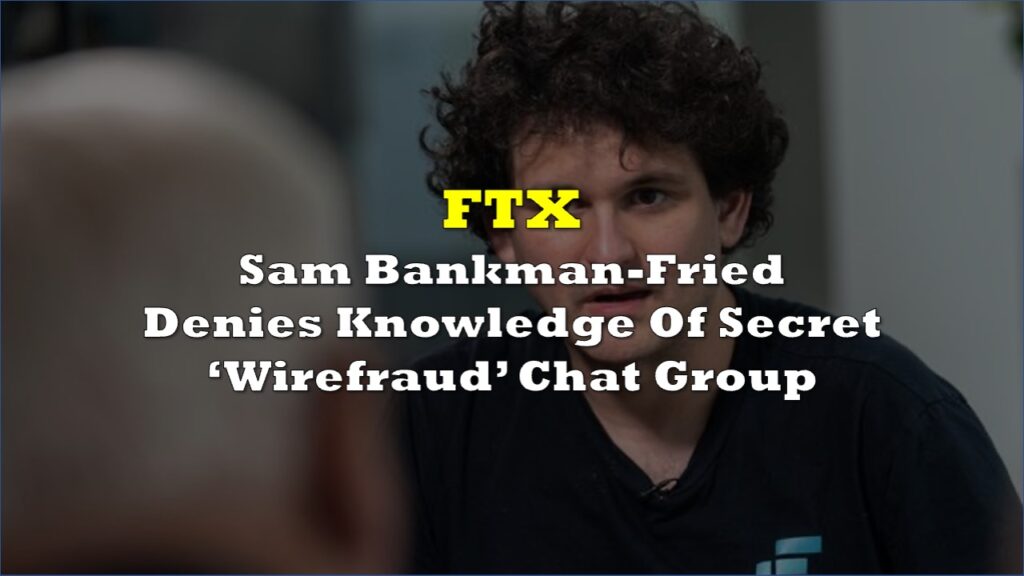Caroline Ellison, a prominent adviser and former partner of Sam Bankman-Fried, revealed during her testimony on Wednesday that she had repeatedly misled the public and disseminated deceptive financial documents to crypto lenders at his behest. These actions were in service of concealing the true state of his businesses, FTX, a digital currency exchange, and Alameda Research, a hedge fund.
As Bankman-Fried’s two enterprises faced collapse in November, Ellison confessed that the burden of her untruths had become unbearable, and the implosions were almost liberating. Emotionally recounting the tumultuous week when the companies failed, she described it as “the worst week of my life.” Tears welled up as she continued, “I felt this sense of relief that I didn’t have to lie anymore, and that I could start taking responsibility, even though I felt indescribably bad.”
OK – now SBF trial continues with Caroline Ellison still on direct, after she got into wrong car, Inner City Press covers the case https://t.co/LBs81TNYu1 & for #CryptoCreeps https://t.co/1w2tkmrTvA exhibits https://t.co/ETZAh2Wypa & will live tweet, thread below pic.twitter.com/0dI72evMZ4
— Inner City Press (@innercitypress) October 11, 2023
Ellison, aged 28, was the government’s star witness in Bankman-Fried’s fraud trial, largely due to her past romantic involvement with him, which provided her unique access to the FTX founder as his crypto empire expanded. This trial in a federal court in Manhattan has become a referendum on high-risk practices within the crypto industry that resulted in billions of dollars in losses last year.
Throughout Ellison’s testimony, Bankman-Fried, 31, maintained a stoic demeanor. During a break in the proceedings, he casually glanced at a group of reporters in the gallery and raised his eyebrows.
Bankman-Fried faces charges of orchestrating a scheme to transform FTX into his personal piggy bank. Authorities allege he misappropriated as much as $10 billion from FTX customers to finance venture capital investments, purchase luxury real estate, make campaign contributions, and repay lenders to Alameda.
Ellison, who served as Alameda’s chief executive, acknowledged that she was one of Bankman-Fried’s key collaborators in channeling FTX customer funds into Alameda’s accounts. In December, she pleaded guilty to fraud and conspiracy, agreeing to cooperate with prosecutors in exchange for leniency. Two other top FTX executives, Gary Wang and Nishad Singh, have also pleaded guilty and are cooperating with the government.
Bankman-Fried has pleaded not guilty to seven criminal charges, including defrauding lenders, potentially facing a life sentence in prison if convicted.
Since the collapse of FTX, Ellison has faced far more public scrutiny than the other cooperating witnesses. She and Bankman-Fried shared a home in the Bahamas, where FTX was headquartered, and had a tumultuous office romance as FTX grew into a $32 billion crypto powerhouse. On Tuesday, Ellison detailed the intimate aspects of their relationship, including the workplace tensions it caused and her own anxieties about Bankman-Fried’s feelings.
“Use Alameda’s line of credit with FTX”
Returning to the witness stand on Wednesday, Ellison delved into the history of FTX’s financial problems. She disclosed that the exchange began unraveling in spring 2022 when the crypto market experienced a crash. She maintained detailed spreadsheets that illuminated Alameda’s debts to lenders and its reliance on FTX customer deposits to repay those loans in worst-case scenarios. She shared this analysis with Bankman-Fried.
The worst-case scenario materialized in June 2022 when Alameda’s lenders demanded repayment, but the firm’s own crypto assets had significantly depreciated, leaving them unable to fulfill their obligations. Ellison testified, “I was in a constant state of dread at that point.” Her testimony occasionally turned emotional, with a court official providing a tissue as she struggled to hold back tears. She expressed her concern that if the public learned that Alameda was using FTX customer funds, “everything would come crashing down.”
Despite outlining the risks, she asserted that Bankman-Fried directed her to use more customer deposits to repay the lenders, even though she knew it was wrong. To mask Alameda’s precarious financial situation, she claimed that Bankman-Fried instructed her to provide one of their major lenders, Genesis, with a misleading balance sheet in the summer of 2022, concealing Alameda’s borrowing of approximately $10 billion in FTX customer money. She admitted to sending similar “dishonest” balance sheets to other lenders before FTX’s demise.
AUSA: What did you understand him to be telling you to do?
— Inner City Press (@innercitypress) October 11, 2023
Ellison: To use Alameda's line of credit with FTX – that is, to use customers' funds. He knew that's the only way it could be repaid. Sam asked us —
AUSA: Who is us?
Ellison: Me, Gary and Nishad
“Don’t send the balance sheet to Genesis”
One of Ellison’s responsibilities involved compiling balance sheets, essentially documenting financial information. Alameda’s initial balance sheets included a line item labeled “FTX borrows,” which she believed represented customer funds. While she wanted to pinpoint this item, she didn’t feel comfortable doing so directly. The original balance sheet did include $4.59 billion in loans to Bankman-Fried, Wang, Singh, and others, categorizing them as related-party loans. This is where the practice of justifiable deception came into play.
AUSA: What did you do?
— Inner City Press (@innercitypress) October 11, 2023
Ellison: Sam said don't sent the balance sheet to Genesis. We were borrowing $10 billion from FTX and we had $5 billion in loans to our own executives and affiliated entities. We thought Genesis might share the info
To “conceal the things on our balance sheet we thought looked bad,” Ellison admitted to creating seven counterfeit balance sheets for Bankman-Fried’s review. The one presented during the trial was dated June 19th, 2022. Notably, the “FTX borrows” and related party loans had vanished from this version. Moreover, some of the money borrowed from FTX by Alameda had been transformed into long-term loans, constituting a second falsehood atop the initial one, as customers retained the ability to withdraw their funds at any time.
Ellison testified that the selected balance sheet, as chosen by Bankman-Fried, portrayed Alameda as less risky than it actually was and concealed the FTX funds. She subsequently forwarded this balance sheet to Matt Ballensweig, head of lending at crypto lender Genesis, the following day.
Ballensweig replied, mentioning that he had “just caught up with Sam” and suggested maintaining close communication during the week. As a result of their financial situation, Genesis requested the repayment of $500 million in loans, as it was no longer a luxury they could afford.
AUSA Sassoon: When you sent this balance sheet to Genesis, did you consider it to be dishonest?
— Inner City Press (@innercitypress) October 11, 2023
Ellison: Yes.
SBF lawyer Cohen: Objection!
Judge Kaplan: Overruled.
Ellison (again) Yes I did
Chinese bribe and Thai prostitutes
Ellison also provided insight into the substantial payments that Alameda made in 2021 to release $1 billion held in trading accounts at two Chinese exchanges. In March, prosecutors charged Bankman-Fried with paying millions in bribes to the Chinese government to regain access to those accounts.
Caroline Ellison of FTX admits that Sam bribed Chinese officials with $100M to unfreeze their assets, purposely tried to scam Saudi investors in the final days of FTX, intentionally tried to sic regulators on Binance to destroy his competition, and it's only lunchtime.
— Autism Capital 🧩 (@AutismCapital) October 11, 2023
“Yes. When we gave a large bribe to China – our accounts were frozen in a money laundering investigation,” Ellison testified.
Although the foreign bribery charge would be tried separately, the judge, Lewis. A. Kaplan, permitted Ellison to discuss some of FTX’s efforts to retrieve the money while emphasizing that Bankman-Fried was not facing a bribery charge in this trial.
After sidebar:
— Inner City Press (@innercitypress) October 11, 2023
Judge Kaplan: Jurors, the defendant is not charged in this case with bribery of Chinese officials
[Inner City Press note: Thanks to Bahamas]
Judge: It is offered for motive. W
AUSA: How were you told to pay?
Ellison: Signal, with Sam Trabucco
Ellison presented further instances that underscored Bankman-Fried’s seemingly nonchalant approach to dishonesty. For instance, when Alameda funds became trapped on two Chinese exchanges, Huobi and OKX, Bankman-Fried initially attempted legal negotiations. When this approach proved unsuccessful, Alameda resorted to attempting to open accounts using the identities of “Thai prostitutes” as a means to initiate transactions for the fund’s retrieval. Although not much information was provided on this endeavor, it ultimately failed.
Ultimately, Bankman-Fried instructed the company to make a bribe, disregarding the objections of a Chinese employee, whom Ellison claims he rudely silenced with “shut the fuck up.” Subsequently, Bankman-Fried and another Alameda executive ridiculed this employee on Signal.
Keeping bitcoin under $20k by selling
The former Alameda chief also admitted that she and Bankman-Fried worked together to try and keep the price off bitcoin under $20,000 by selling the crypto asset should it go over said price.
JUST IN: Ex-girlfriend Caroline Ellison & Sam Bankman-Fried conspired to keep #Bitcoin under $20k by selling customer BTC.
— Watcher.Guru (@WatcherGuru) October 11, 2023
Ellison referenced notes on his conversation with Bankman-Fried, where she wrote “keep selling BTC if its over $20K.”
Judge Kaplan: Where does it reference related party loans?
— Inner City Press (@innercitypress) October 11, 2023
Ellison: That's not on this balance sheet. It was on the internal balance sheet.
AUSA: We can look at that. This is the last spreadsheet.
Judge Kaplan: Microsoft's stock will be plunging
[laughter]
“Things Sam is freaking out about”
As the value of cryptocurrencies sharply declined and the assets held by Alameda lost their worth, Ellison expressed how her awareness that the funds used to repay loans ultimately originated from FTX customers left her in a state of “constant dread.”
“Every day I was worrying about the possibility of customer withdrawals at FTX,” she remarked.
Ellison disclosed that she and Bankman-Fried engaged in brainstorming sessions to explore various strategies to support his companies. She recalled his suggestion to sell a share of FTX to Saudi Arabian Crown Prince Mohammed bin Salman and to enhance its market share by encouraging regulatory authorities to take stringent action against competing crypto exchange Binance.
Ellison also mentioned that regulators had given Bankman-Fried assurance that a crackdown on Binance was impending, though she did not provide further details. It’s worth noting that in June 2023, the U.S. Securities and Exchange Commission filed a lawsuit against Binance and its founder Changpeng Zhao, accusing them of intermingling and diverting customer funds. Binance and Zhao have refuted these allegations.
Ellison: At this time, Sam wanted to buy Snapchat… Also, to trade Japanese government bonds.
— Inner City Press (@innercitypress) October 11, 2023
[The specific line is "getting regulators to crack down on binance]
Ellison vs. Bankman-Fried
Ellison mentioned that she received advice from Bankman-Fried not to document anything she wouldn’t want to become headline news in The New York Times. However, she disregarded this counsel by creating a series of memos about their relationship. Eventually, Bankman-Fried went so far as to publicly release those memos to The New York Times which led to him being detained in jail.
Ellison also provided testimony indicating that Bankman-Fried’s deliberately unkempt personal appearance served as a deliberate facet of his public relations strategy. He aimed to convey the image of an intelligent, capable, and somewhat eccentric founder.
Furthermore, Bankman-Fried made investments in companies like Semafor and The Block, and he contemplated investments in Vox and Forbes, according to Ellison’s testimony.
“He said he believed in a very proactive approach to public relations,” Ellison explained. She also stated that he believed his famously disheveled hair had considerable value and had even led to higher bonuses when he was working. This revelation visibly shook Bankman-Fried in the courtroom. While Ellison and Bankman-Fried initially owned luxury cars, he believed that driving a Toyota Corolla would be more favorable for his image, so he made the switch.
AUSA: What about cars?
— Inner City Press (@innercitypress) October 11, 2023
SBF's lawyer: Objection, relevance.
Judge Kaplan: Overruled.
Ellison: Sam said it was better for his image to drive a Toyota Corolla. So I drove a Honda.
It's fascinating learning how self-aware Sam Bankman-Fried was. Caroline Ellison testifies that Sam knew exactly what he was doing with his disheveled nerd ugly image, he was cultivating the image of eccentric founder intentionally to raise money and get customers. It was a ruse.
— Autism Capital 🧩 (@AutismCapital) October 11, 2023
Given Bankman-Fried’s immense focus on public relations, when Bloomberg was preparing an article that critically and seemingly accurately highlighted the connections between Alameda and FTX, he contemplated the possibility of shutting down Alameda. Both Bankman-Fried and Ellison provided false information to the reporter to create the illusion of greater separation between the two companies. In an effort to increase this perception of separation, a venture fund was renamed to remove “Alameda,” even though the funds originated from there.
In hand-written notes, Ellison outlined the challenges associated with closing down Alameda. One of these challenges was the fact that Alameda’s role involved “market making for shitty things,” which referred to the provision of liquidity for thinly-traded assets. Additionally, Alameda served as a backup liquidity provider for FTX.
Ultimately, despite considering these measures, they took no action.
The two crypto executives’ personal relationship deteriorated in the middle of 2022, mirroring their strained professional ties. During an intense conversation in August 2022, she broke down and cried as Bankman-Fried blamed her for Alameda’s financial difficulties. He accused her of failing to take sufficient measures earlier in the year to reduce Alameda’s trading risks in the crypto market.
“He was speaking loudly and strongly,” she recalled. “I got very upset, started crying, and I had trouble continuing the conversation.”
AUSA: When did you make this list?
— Inner City Press (@innercitypress) October 11, 2023
Ellison: Fall of 2022. I was talking about hedging.
[Note: SBF's lawyer in opening statement blamed Ellison for NOT hedging]
Ellison: Sam tried to say that it was my fault.
AUSA: Where was this?
Ellison: In the apartment study
Ellison further explained her willingness to participate in Bankman-Fried’s schemes. Before his companies collapsed, he often described himself as a utilitarian, suggesting that he made decisions for the greater good. Ellison testified that he believed “rules like ‘don’t lie’ or ‘don’t steal'” didn’t align with this framework, and over time, she became influenced by his beliefs.
“It made me more willing to do things like lie or steal,” she concluded.
At the end of her testimony, Ellison revealed that she hasn’t been sentenced for pleading guilty. Under the cooperation agreement with prosecution, the government will “write a letter to the judge about [her] crimes and cooperation” in exchange for her testimony.
AUSA: Have you been sentenced?
— Inner City Press (@innercitypress) October 11, 2023
Ellison: No.
AUSA: What do you have to do under the cooperation agreement?
Ellison: Tell the truth.
AUSA: And the gov't will do what?
Ellison: Write a letter to the judge about my crimes and cooperation.
AUSA: No further questions
When the trial resumes on Thursday, Bankman-Fried’s lawyers will have the opportunity to question Ellison.
Information for this briefing was found via The New York Times, Verge, Reuters, and the sources mentioned. The author has no securities or affiliations related to this organization. Not a recommendation to buy or sell. Always do additional research and consult a professional before purchasing a security. The author holds no licenses.

